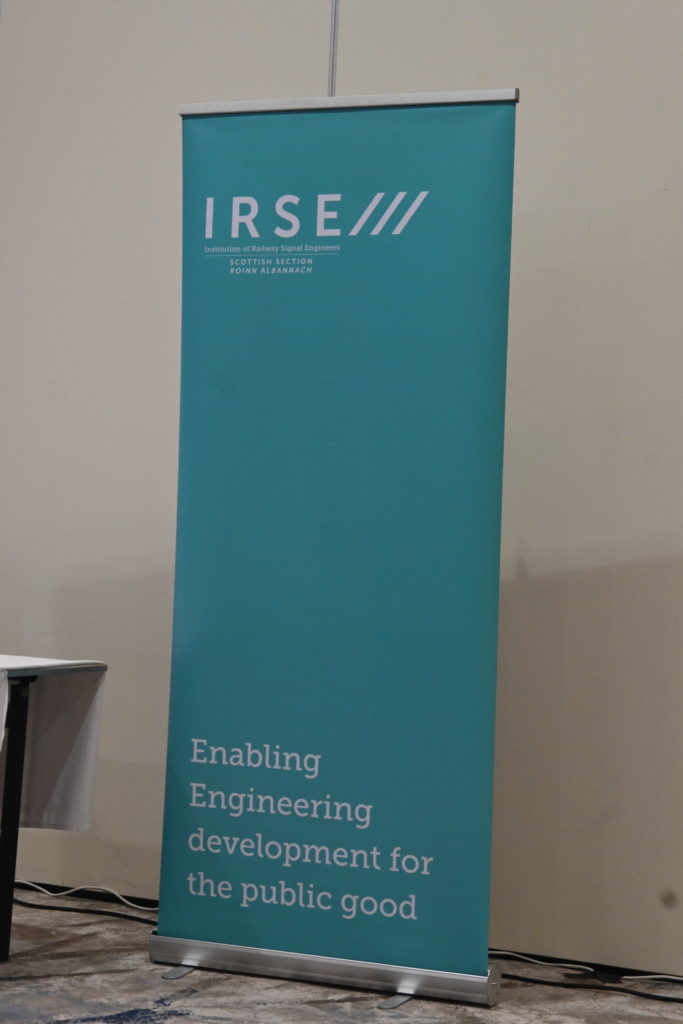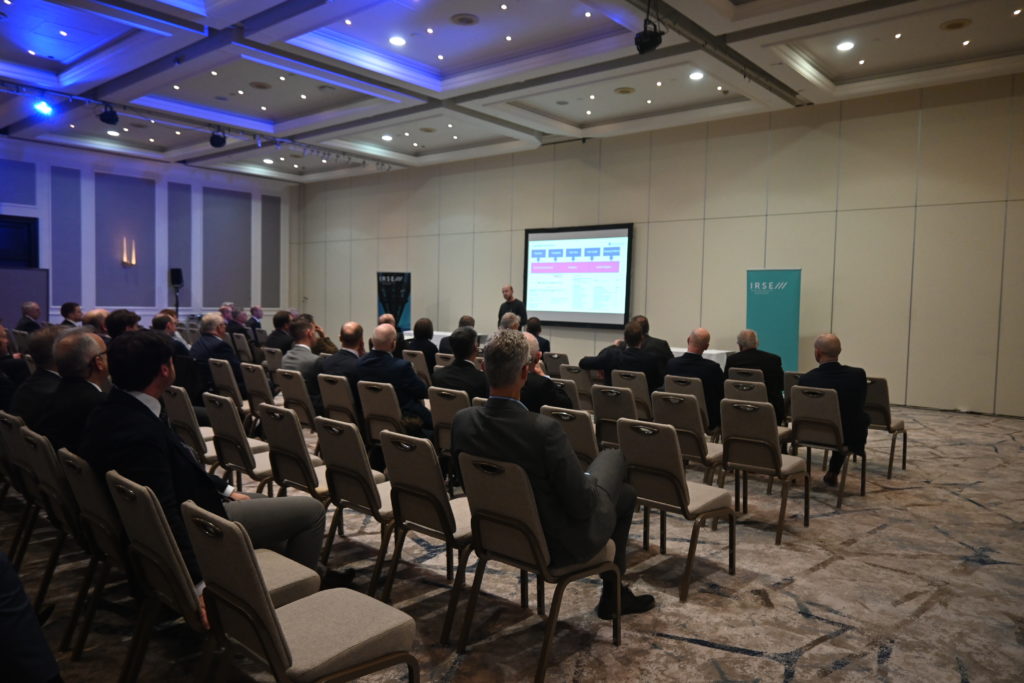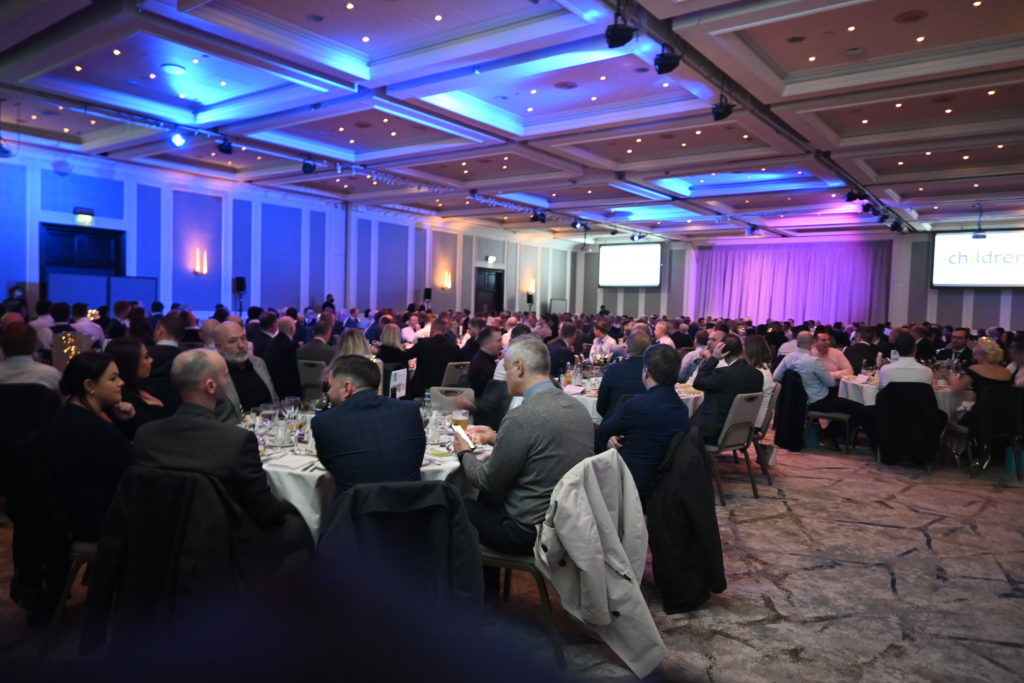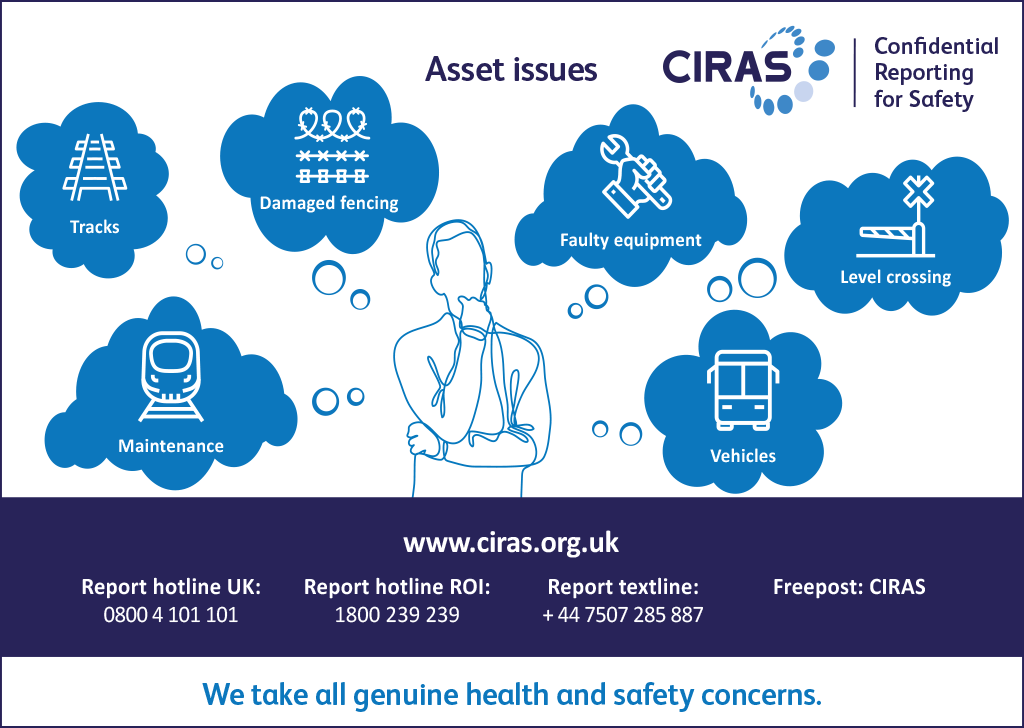The popular annual Institution of Railway Signal Engineers (IRSE) Scottish Section dinner was held on Thursday 17 March 2022 in the Marriott Hotel, Argyle Street, Glasgow. The dinner was officially the 2021 event, which had been moved back from the section’s traditional November date due to the UN COP26 summit taking place in Glasgow last year. The IRSE Scottish Section dinner is the largest annual rail industry event in Scotland.

The dinner was once again superbly organised by IRSE Council member Peter Allan, who has managed the arrangements for the dinner in the Marriott Hotel since 2001. The section was also very grateful for the sponsorship of the dinner from MPI Recruitment. Simon Henser of MPI said: “After 20 years of supporting railways in Scotland and 14 years attending the IRSE dinner, it was an easy decision for us to sponsor this popular event”.
MPI said the hardest decision they had to make was the corporate gift to give each of the attendees of the dinner, as there had been so many good ones over the years. Wanting to give something back to the communities they supply, and leaning of the wonderful work the charity does, MPI decided to make a donation of £1,200 to the Glasgow Children’s Hospital Charity, on behalf of the company and the IRSE members and guests.
Two separate charity collections were organised on the night for the Railway Children charity and the DEC Ukraine Humanitarian Appeal. £2,461 was raised for these two worthwhile causes from the assembled guests.
Earlier in the evening the dinner was preceded by the March IRSE Scottish Section lecture, held at the same hotel. Following a late-notice change, Douglas Rarity, programme manager strategy and investment, Network Rail stepped in to discuss ‘Timetable Led Project Development and Benefits Realisation’.
Douglas explained that the timetable is the core product that rail provides to customers. It is the sum of all parts of the system, distilled into locations and times. The quality of the timetable product is one of the reasons customers choose rail or another mode of transport. It is also what the industry measures train performance against, with performance being the most important driver of passenger satisfaction. The timetable determines whether end to end journey times are competitive for passenger and freight services, and whether there is capacity for the service level required. It is the heart of a customer’s experience.
Timetabling can be used to test enhanced service levels to identify and strongly evidence why enhancements are required and what the enhancements need to deliver and where. It can also be used to evidence current constraints that may lead to overall timetable flexibility and performance being constrained. This evidence and the quantifiable benefits can readily flow into business cases.

Conversely, it can also evidence why proposed enhancements aren’t required, in what time frame they would be and helps direct investment to where it is most required to provide maximum benefit for customers. Assurance is also an important timetable modelling activity, assessing whether enhancement designs deliver the required timetable benefits before they are committed to delivery.
Douglas went on to explain the advantages a timetable led approach to enhancement project development can bring from a cost, time, and evidence perspective through case studies, and how it can help the industry realise the benefits of enhancement projects. The lecture was followed with some insightful questioning from the appreciative audience, which were all expertly and enthusiastically answered by Douglas.

The dinner, which followed at 8pm, was attended by over 300 IRSE members and guests, including past, current, and future IRSE presidents, and the chief executive of the IRSE. The dinner was of excellent quality and service, and the event was once again a superb networking event with the opportunity for colleagues and friends to meet face to face after two years. The IRSE Scottish Section is now working hard to organise the IRSE Convention in September and the IRSE Scottish Section dinner 2023 will be held again in the Marriott Hotel on 9 November 2023.
Special thanks to Council Member Peter Allan and the wider IRSE team for organising this fantastic event.


